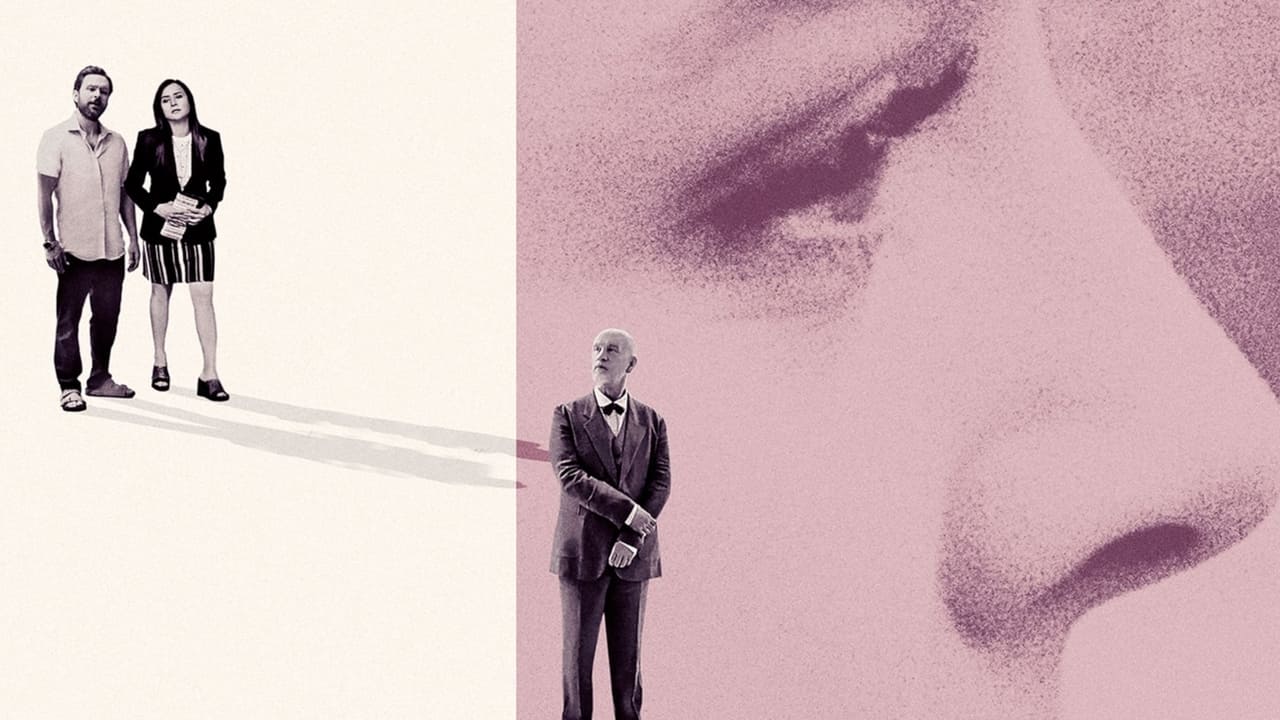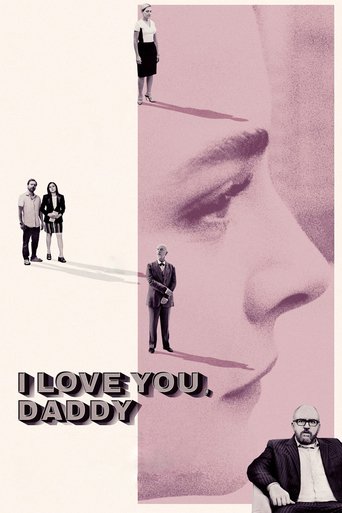poindexter_mellon
The first time i watched this i didn't really like it. I think i was expecting something else, something funnier, something like a Louis CK episode on TV. This movie made me uncomfortable and i didn't want that.So i watched it again a week later, just for something to do. This time it was a whole different experience. It's a great movie, very thought-provoking, kind of sad, kind of funny, kind of like real life in a way that few movies are anymore. Characters that i found annoying the 1st time were not annoying at all the 2nd time. Weird. This movie deserves a major release. I mean get over it, get a grip, grow a spine, keep an open mind and watch something that might challenge you just a little bit. In time people will recognize this as the great film it is. That's my prediction. It'll take time because most people suck, but mark my words, this is one of those movies that they'll be talking about decades from now when they wonder what the hell was wrong with the idiots in 2018 who essentially banned it for no good reason.
Brakathor
It's sad that we have to ask the question, but these days seeing as how a man's healthy sex life can so readily be the pretext to seemingly perpetual damnation without charges or trial, in extremely ironic fashion the very scandal surrounding Louis completely renders redundant the entire purpose of the film and its message. The film comes across as episodic in nature, and doesn't really have much of a plot. What it is, is an existential exploration of relationships between men and women, be it father/daughter, friend/friend, husband/wife, boss/employee, and everything in between, mostly all focused around the ever pervasive sexual tension that exists therein. The main question the film postulates upon is "what does and does not constitute leud behavior, and in those situations who really is at fault?" Perhaps this is the conversation that SHOULD have been had in our culture, only now there's no way to have it.The majority of people seem to be content to give the finger to the man, the film, and most importantly the question itself, and if that's not how they feel, they're TERRIFIED to say otherwise, and why? Because looking at yourself in the mirror as you sit back and judge others is hard. THAT'S what the film is about, and for that reason it's a complete flop, not just in terms of reception, but in terms of value and purpose. At the end of the day, it really is just a lot of dithering about things that we already know and are conscious of deep down, and there are just too few left to appreciate it for what it is. Hypocrisy is the word of the day here for everybody involved. Louis C.K. kind of comes across like he's pontificating his moral enlightenment from a pulpit of moral superiority, and expecting a round of applause for it. Essentially: "I know I'm flawed but aren't I such a great person for pointing out all of our flaws and owning up to them?"Indeed, THIS was the film that was going to be the one that everyone lapped up, and showered with awards and adulation for tackling a "deep and troubling subject," where Chloe Grace Moretz was going to be slated for an Oscar nomination. No offence to the actress, but ABSOLUTELY ridiculous in my opinion, as this was not a demanding role by any stretch of the imagination. What happened to all of that? The answer is, nobody knows. Either you thought she was worthy of best actress and deserved to be awarded accordingly, or your award ceremony is worth NOTHING. Either you thought the film was worthy of accolades and proceeded to award the director accordingly, or your award ceremony is worth NOTHING. If the academy awards has nothing whatsoever to do with actual artistic merit, and it has simply to do with rewarding great deeds and whoever is the most morally virtuous of them all, then not a single actor or director should be given a single academy award EVER, as there are far more virtuous people in the world than any actor. If you can't separate the art from the man, then you're not a real award ceremony.The fact is, the WHOLE scandal and all parties involved account for a parade of moralizing self-adulating b.s.; that's ALL this is in the end. This film WOULD have been overhyped and overrated; instead it's been unduly snubbed completely, and getting back to the real question, how do we truly rate this film now, and the budding career of Louis C.K. as a feature film director, cut short in its infancy? In short, this film is NOT a masterpiece. It's very flawed both in terms of writing and plot structure. It shows a LOT of room for him to grow as a director, however it also shows a lot of promise.In terms of writing, yes a lot of it is funny and witty... OF COURSE it is. For me the main problem is Louis C.K. is really really bad at character development. When every SINGLE character talks EXACTLY like Louis C.K., not only is it distracting and impossible to miss, but for one, it's extremely unattractive hearing four different women talk like stereotypical man's man dudes. I can understand why this would have been hard to correct. Louis C.K. is so used to using language in such a way as to express a fairly mundane idea or concept in a way that just sounds funny. To a certain extent, this would involve making a perfect comedic exchange on paper less funny because character X just wouldn't EVER talk with that level of comedic sophistication when character Y would. Sitcom characters vs. movie characters, basically. Either way, I found most characters in the film to be fairly unlikeable, which for a film like this, is a problem. Charlie Day's character is INSANELY obnoxious in this movie. He's one of those guys who clearly thinks all he has to do to be funny is overact in every single scene, one of the dime a dozen comic relief actors who play in one flop of a movie and are NEVER heard from again. He is that guy (hopefully).In terms of directing, Louis made a couple of, I guess what would be considered bold moves: shooting in black and white, relying heavily on a classical film score, and trying really hard to give the film a retro feel, while still remaining contemporary. Did he succeed, and were these good decisions? I'll admit that the answer is EXTREMELY subjective so I'll say yes these elements DO tie together in a cohesive way, but because of the contemporary sitcom-like elements of the film, it also comes across as a bit pretentious. Personally I'm not a fan of it at all. To me this is all tinsel. It's kind of like painting over cracks of an unsound foundation with glitter. As far as I'm concerned there's NEVER a good reason to shoot in black and white, for one. In the early days they shot in black and white because the technology for color was not yet perfected. That's ALL that is, and so far I've NEVER heard an artistic reason to shoot in black and white that didn't sound ridiculous to me. Directors who do this are usually trying to lend a sort of artificial gravitas to a film that has some undeniably cheap elements to it, which they don't have the skill to iron out any other way. Russ Meyer did it, and now Louis C.K. did it too.To me the worst aspect is he all too often tries to shovel too many plot devices into the same scene. This was common in early films: "Protagonist receives important phone call. Key character arrives unannounced to deliver important plot point. Second key character arrives unannounced to deliver important plot point," and it's all within the same scene, this same pattern repeating itself over and over again. The movie comes across as a cheap TV sitcom, particularly in the first half, for this reason. A clear tribute to early Woody Allen films, but Woody Allen, Louis C.K. is not, at least not yet. The script is funny and has some real gems in it; it just needed a more sophisticated package to be considered anything bordering on "great" or a "masterpiece." Will Louis C.K. ever be able to achieve that level of skill as a director? Sadly, we may never know.

